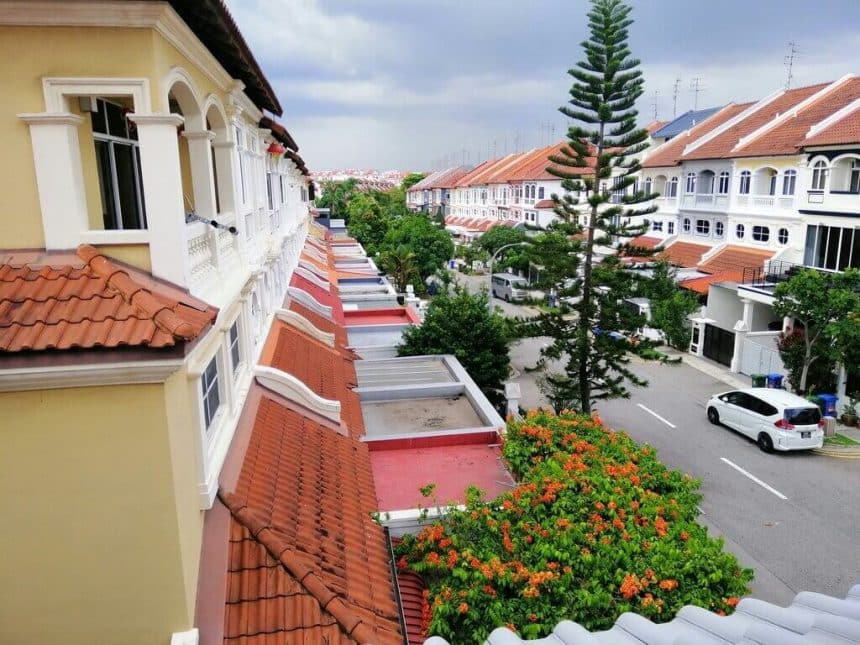In the dynamic world of real estate, navigating through the property agent commission in Singapore can be challenging since there are no official rules. However, some fees are often practiced that can serve as a guide for sellers and buyers. This article provides a comprehensive overview of property agent commissions in Singapore, explaining the rates for both buyer and seller agents and landlords and tenants. It also describes the roles and responsibilities of the different agents and what factors influence the commission rate. Lastly, the popular term ‘co-broking’ is discussed.
Property agent commission in Singapore
Property agent commission refers to the compensations paid to real estate agents or agencies for their services regarding the sale, purchase, or rental of properties. While there is no official guide for commission rates, there are rates that are usually followed. Below are two tables; the first is about the property agent commission in Singapore for buyer’s and seller’s agents. The second table is about the property commission for landlords and tenants.
Property agent commission in Singapore for buying or selling
Below is an overview of the property agent fees in Singapore for buying and selling based on property type.
| Property type | Buyer’s agent commission | Seller’s agent commission |
|---|---|---|
| HDB resale | Usually 1% commission | Usually 2% commission |
| Condominiums | No commission, seller’s agents splits their commission with buyer’s agent | Usually 2% commission |
| Landed properties | No commission, seller’s agents splits their commission with buyer’s agent | Usually 2% commission |
Property agent commission in Singapore for renting
Below is an overview of the commission that needs to be paid to the property agent based on the renting period.
| Renting period | Commission |
|---|---|
| Above SGD 3,500 ($2,588) in rent with a two-year lease | One month’s rental price |
| Above SGD 3,500 ($2,588) in rentwith a one-year lease | Half a month’s rental price |
| SGD 3,500 ($2,588) or below with a two-year lease | One month’s rental price |
| SGD 3,500 ($2,588) or below with a one-year lease | Half a month’s rental price |
2 types of property agents in Singapore
Singapore has two types of property agents: listing or landlord and buyer or tenant agents.
- Listing or landlord agent: A listing agent refers to a property agent or realtor appointed by the seller or landlord to promote a property.
- Buyer’s or tenant agent: A buyer’s agent refers to a property agent or realtor appointed by someone interested in buying property.
Below is an overview of the tasks these property agents cover and information about the property agent fees in Singapore and what influences those rates.
Listing agent in Singapore
Listing agents in Singapore, often called ‘landlord’s agents’ or ‘seller’s agents,’ play a crucial role in marketing and selling properties.
What do listing agents cover in Singapore?
Below is an overview of the ten things that listing agents typically cover:
- Property evaluation: Based on factors such as size, location, and current market trends, recommendations for pricing strategies are offered by the listing agent.
- Marketing strategy: Seller’s agents create comprehensive marketing plans to promote the property.
- Property presentation: Property seller agents advise property owners on how to prepare their homes for sale.
- Listing creation: They create compelling property listings with information about the property, photos, and accurate descriptions.
- Prospective buyer or tenant screening: Listing agents pre-screen potential buyers or tenants to ensure they are interested and financially qualified.
- Conducting viewings: They schedule and manage property viewings, including answering questions and highlighting its selling points.
- Negotiation: Listing agents negotiate on behalf of the property owner when offers are received. They negotiate terms and conditions and advise on counteroffers.
- Legal and regulatory compliance: Property agents ensure that all requirements related to the property transaction are met, including handling paperwork, contracts, and compliance with Singapore’s Council for Estate Agencies (CEA) guidelines.
- Closing the deal: When both parties agree on the price, listing agents oversee the transaction so all parties meet their obligations, contracts are signed, and necessary payments are made.
- After-sales support: Listing agents might provide after-sales support for addressing issues during the closing process.
What is the property agent commission in Singapore for selling agents?
There are no fixed rules for property agent fees in Singapore; everything is negotiable. However, the commission often ranges from 1% to 4% of the property’s price. Commissions for listing agents in Singapore vary in different situations.

Buyer’s agent
Buyer agents play a crucial role in assisting their clients in finding and purchasing property. They oversee the complete purchasing process to oversee a seamless transaction.
What do buyer agents cover?
Below is an overview of the nine things buyer agents cover:
- Property search and selection: Buyer agents help their clients identify worthy properties. Besides, they provide insights into various neighborhoods and property types.
- Property viewings: Property viewings are scheduled by buyer agents and often accompany their clients during those viewings to offer guidance.
- Market analysis: Clients are provided with marketing analysis to assist them in making fair, competitive offers.
- Negotiation: Buyer agents negotiate with the seller’s agent to secure the best deal for their clients.
- Due diligence: The buyer agent helps the client take reasonable steps to satisfy legal requirements. This may include reviewing property documents and ensuring legal compliance.
- Professional advice: Buyer agents offer their clients professional advice on several aspects of the property transaction. Including property advice conditional, potential for the future, and investment considerations.
- Paperwork and documentation: Buyer agents help complete the necessary documentation and paperwork required for property transactions so that it is compliant with the law and regulations.
- Inspections: Buyer agents might arrange inspections to ensure the property meets its client’s expectations. These inspections might include pest and mold inspections.
- Closing assistance: Buyer’s agents guide clients throughout the closing process, ensuring all contractual obligations are met.
What are the property agent fees in Singapore for buyer’s agents?
The rules for property agent fees in Singapore for buyer’s agents are similar to the commissions for seller’s agents. There are no fixed commission rates or provided guidelines. The commission rates for buyer’s agents are typically negotiated between the agent and their clients; often, it’s a commission between 1% and 4% of the property’s value. This allows flexibility and customization based on the specific requirements.
However, buyers do not pay commissions to their agents for condominiums and landed properties. In these cases, the seller’s agents split the commission with the buyer’s agents.
What are the factors that influence the property agent commissions?
Factors that might play a role in higher commissions are:
- Urgent state: The commissions the seller pays can be much higher if the seller wants to sell the property quickly. Or if the buyer wants to find and buy a property soon.
- Property is hard to sell: When the seller’s property is hard to sell, commissions paid by the seller can be higher.
- Overseas buyer: Commissions can be higher when the agent is overseas since it’s more work for the other agent.
- Luxury properties: Property agents might negotiate higher commissions for high-end properties with high price tags due to the complexity of selling or buying luxury properties.
- Property type: Higher-priced properties can come with higher commissions.
- Demand: When there is a lot of need for buyer or seller agents due to the market conditions, commissions can be higher.
- Additional services: When real estate agents offer extra services beyond the standard scope, commissions can be higher.
How to save on agent commission in Singapore?
Reducing the agent commission costs in Singapore’s property market can be a goal for many sellers. The commissions in Singapore are typically around 2%. Below are some strategies to save on agent commission:
- Negotiate: Since the commission rate is not fixed, negotiating can lower the commission fee. Be prepared to discuss the commission terms when you engage with a real estate agent.
- Compare agents: Singapore offers numerous agents and agencies. So, there is no need to settle for the first agent you meet. Check out multiple agencies to find the one that fits your needs.
- Fixed-fee agents: Some real estate agencies offer fixed-fee services. This can provide transparency and predictability in your expenses.
- No agent: It’s possible to sell or buy without an agent. However, this is not advised since Singapore’s housing landscape is complicated.
It’s essential to find a balance between saving on agent commission and ensuring you have all the necessary information and support to sell or buy a property successfully. When negotiating, be clear about your expectations and which services you require from the agent or agency.
What is co-broking
Co-broking is a practice in the real estate industry where two or more property agents or real estate agencies collaborate to complete the property transaction to benefit their clients. One agent or agency often represents the seller, and the other agent or agency represents the buyer. Both parties split the commission of the sale.
Co-broking is different from dual agency, where one agent or agency represents the buyer and seller.
However, it is prohibited for property agents to collect both commissions of their client and of the co-broking deal as stated in clause 1.8.3 of CEA’s Professional Service Manual.

How does co-broking work in Singapore?
Below are the four steps for co-broking in Singapore:
- Property listing: When a property owner or seller wants to sell or rent their house, they may engage a real estate agent to list their property for sale or rent.
- Co-broking agreement: The engaged listing agent, who has the exclusive right to market the property, may enter into a co-broking agreement with other real estate agents or agents. This agreement allows the other agents or agencies to show the property to their network of clients.
- Marketing and viewings: The other agencies promote the property to their client base and schedule property viewings. They can also advertise the property on several platforms.
- Commission sharing: When one of the agents or agencies successfully found a buyer or tenant for the property. The commission earned is typically shared between the seller’s and buyer’s agents. The commission is split based on a premade co-broking agreement.
What are the benefits for sellers with co-broking?
Co-broking offers several benefits for sellers in the property market. Here are the benefits for sellers when co-broking:
- Increased exposure: When co-broking, the property gets exposed to a broader network of potential buyers. This may result in a faster sale.
- Broader marketing reach: Since all cooperating agents have their marketing strategies and platforms, the property gets promoted through various platforms, increasing visibility.
- Expertise and insights: Co-broking with different agencies may bring additional knowledge and wisdom, helping the sellers make informed decisions.
- Cost-effective: Sellers often don’t pay extra fees for co-broking services.
Competitive advantage: Because the listing is widely spread across the market, the property might stand out among other listings, which can attract more potential buyers.
Find a real estate agent in Singapore with Own Property Abroad
For foreigners looking to sell or buy property in Singapore, understanding the regulatory landscape can be difficult. Working with a property agent can ensure a smoother transaction. These agents know the rules and can help you with your property journey.
Conclusion
In conclusion, understanding property agent commissions in Singapore is essential for buyers and sellers to navigate the real estate market. While there are no official guidelines, there are practises often followed by agents. For sellers and buyers, commission rates typically range from 1% to 4% of the property’s price, with room to negotiate. Factors such as property type, urgency, and additional services play a role in determining these rates.
Understanding property agent commissions in Singapore helps individuals to make well-informed decisions. Resulting in a balance between cost savings and the support needed for a successful property transaction.
Frequently asked questions (FAQs)
What is property agent commission?
Property agent commission is the commission paid to real estate agents or agencies for their services in facilitating property transactions.
What is the real estate agent fee in Singapore?
The real estate fee in Singapore is not fixed and varies based on negotiations between clients and agents. Typically, the fee ranges from 1% to 4% of the property’s selling price. Buyers do not pay commissions to their agents for condominiums and landed properties.
What percentage do most real estate agents charge?
Most real estate agents charge 1% to 4% of the total property price.
What is the meaning of co-broking?
Co-broking means that two or more property agents work together to facilitate a property transactive that benefits both clients. Typically, one agent represents the seller, while another agent represents the buyer.
When does a property agent commission get paid?
A property agent’s commission is typically paid when the property transaction is successfully completed.



